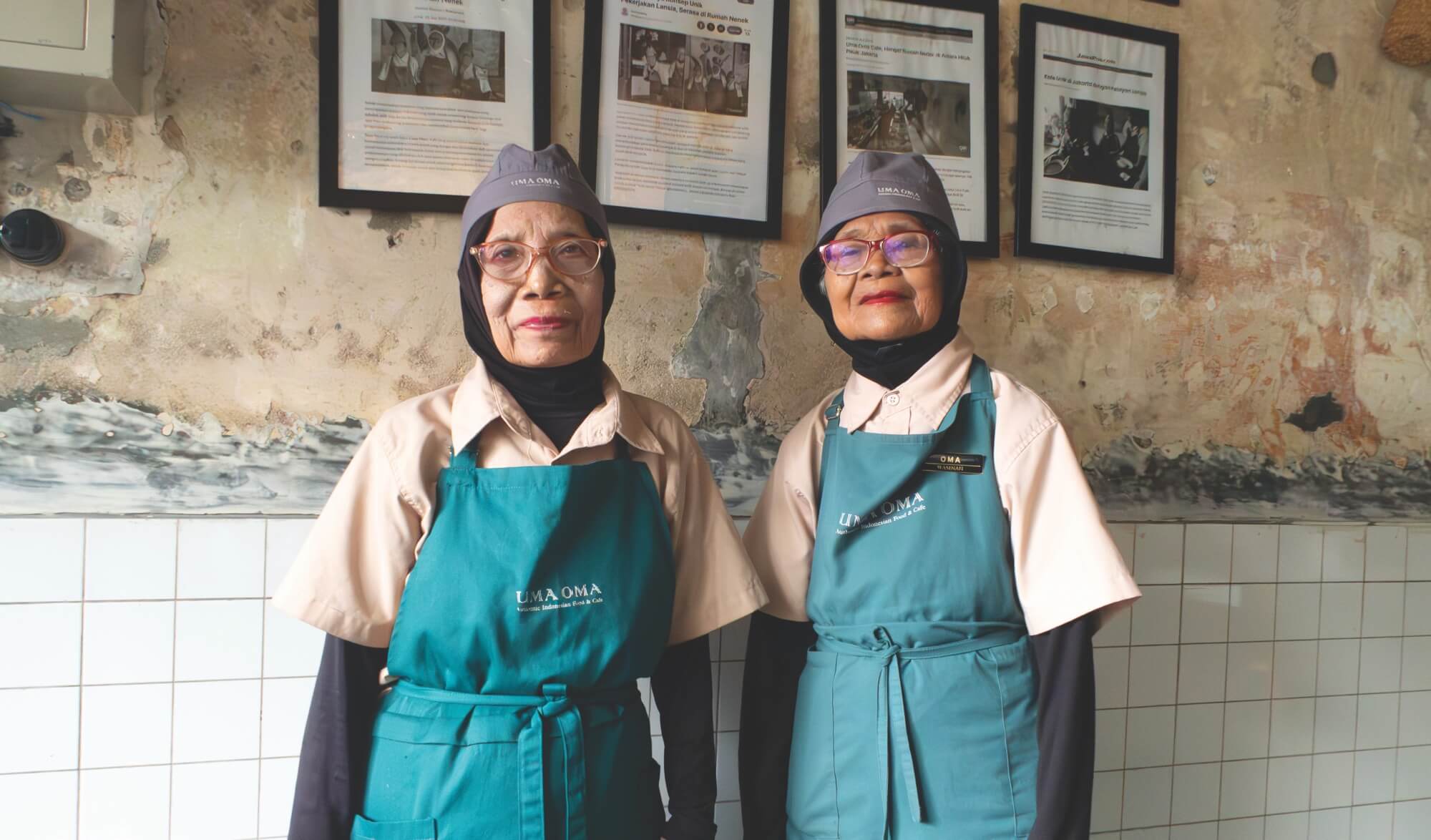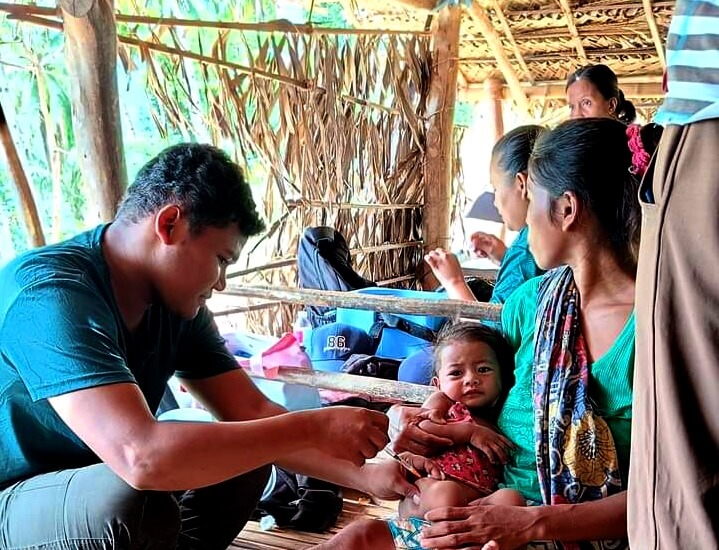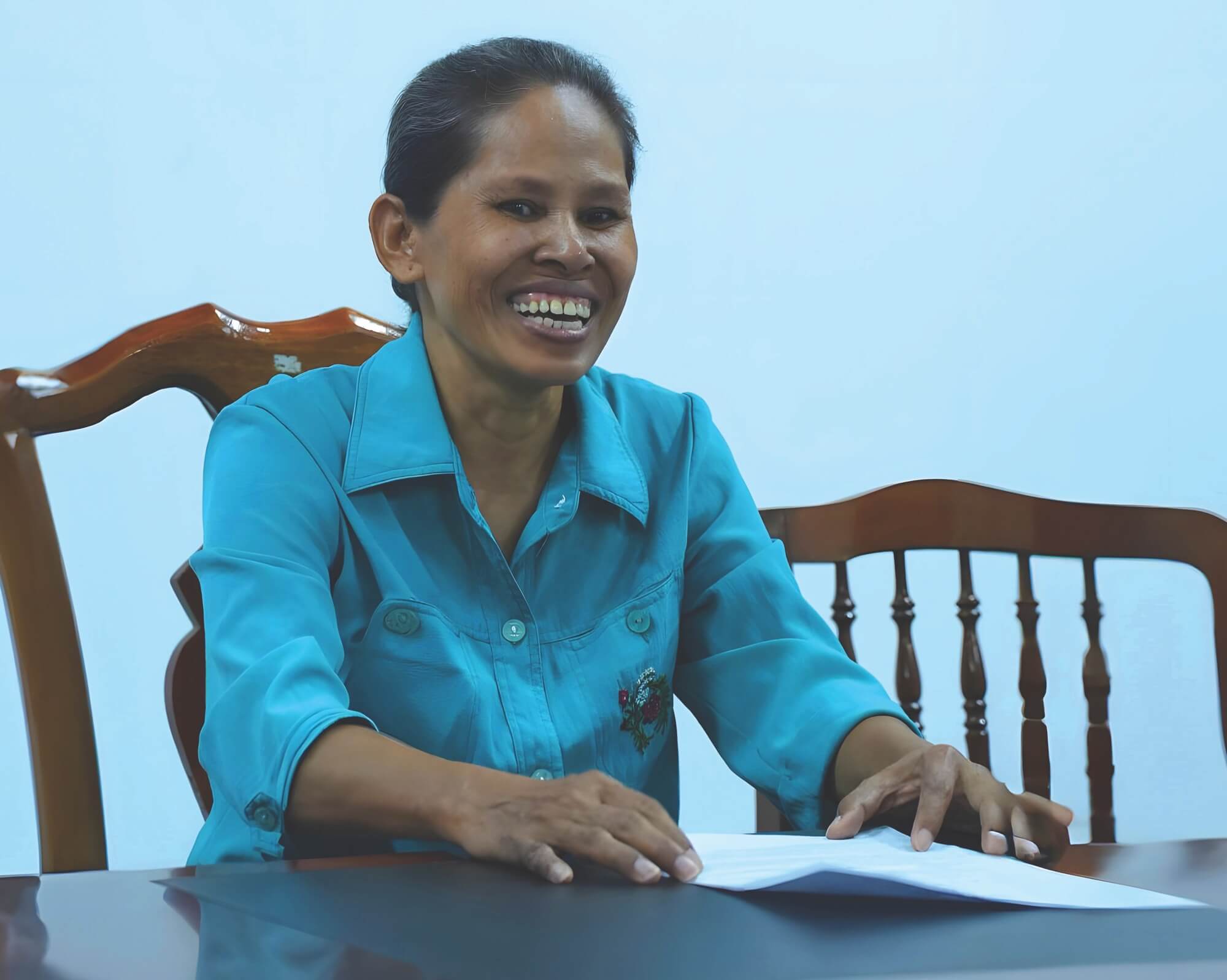
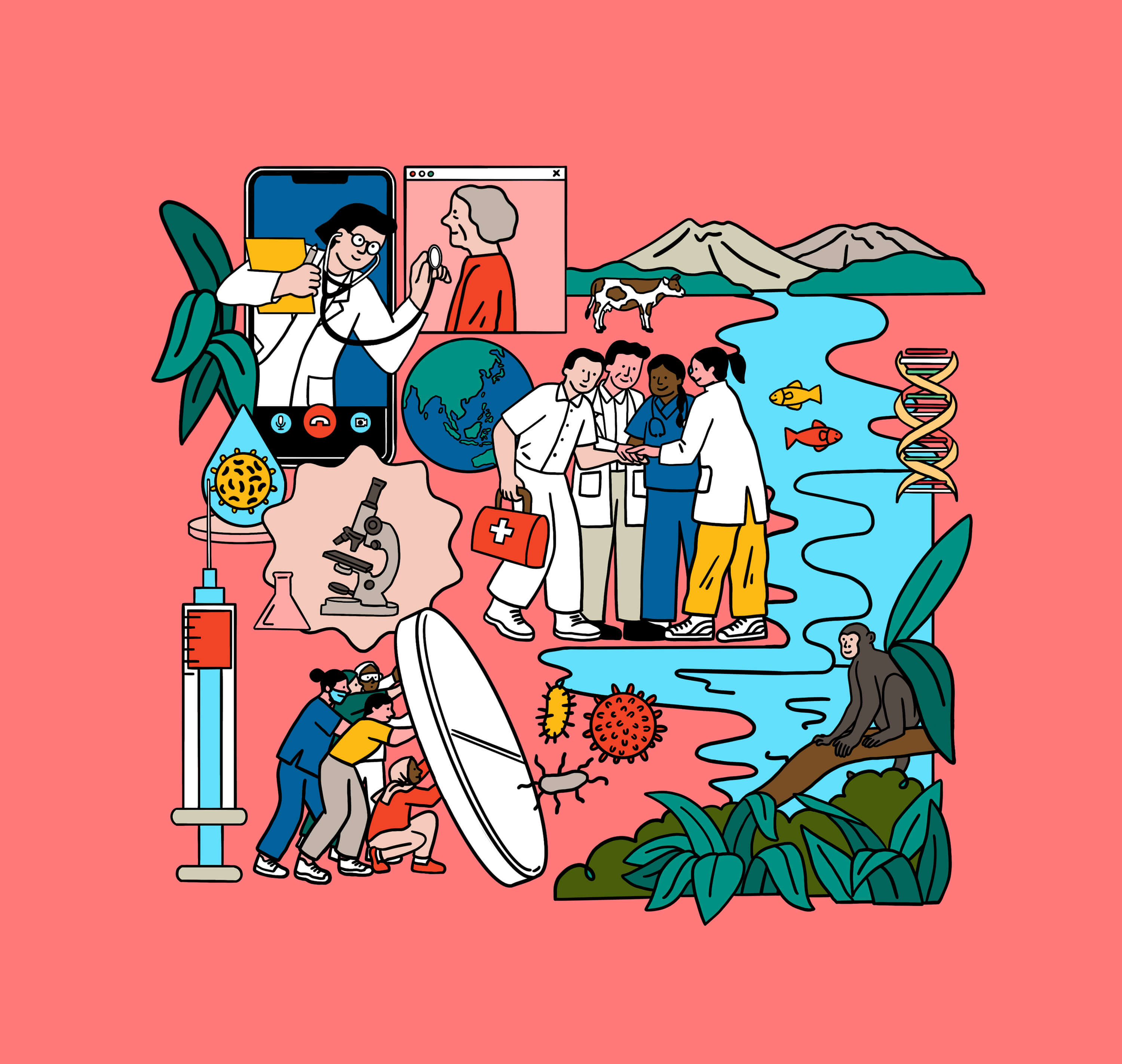



Fifty-two-year-old Touch Phalla dropped out of school when she was 12, just after finishing primary school. It was in the 1980s when her father had abandoned the family, leaving her mother to fend for Touch and her sister. Young Touch needed to become the family’s breadwinner. She baked traditional Khmer cakes and sold them on foot in the streets around her neighbourhood in Phnom Penh. Growing up as a cake vendor, she set aside her dream of becoming a doctor.
Cash for Hope
“All I do is work to provide for my family, to provide the essentials,” she told The ASEAN.
She has owned a small store in front of her house for about ten years. Currently, four people live with Touch Phalla: her mother, her sister, her niece, and herself. After learning about the cash transfer programme from the Ministry of Social Affairs through her community leader, she has been participating in the programme since 2019. Touch Phalla is eligible to benefit from the Cash Transfer Programme for Poor Households in the “Poor 2” category (see chart).
“Cash from this programme helped me to ease my family’s burden. In the first two months, we received 320,000 Cambodian riels (80 US dollars) and then 290,000 Cambodian riels (72.5 US dollars). Later on, it was 140,000 Cambodian riels (35 US dollars). I have received it regularly since 2019. From my business, I earn 40,000 to 50,000 Cambodian riels (10-12.5 US dollars), with around a 4,000-5,000 Cambodian riels (around 1 US dollar) profit per day. I use the cash transfer to pay for electricity and medicine for my mom, who suffers from diabetes and high blood pressure.
“I would like to thank the government for providing this programme to me for a long time now. I hope the programme will continue and that I can be a beneficiary. My dream is to have an adequate livelihood. As women, we need to work hard, be patient, and persevere. Although I can’t pursue my dream of becoming a doctor, I hope that my niece can be one in the future.”
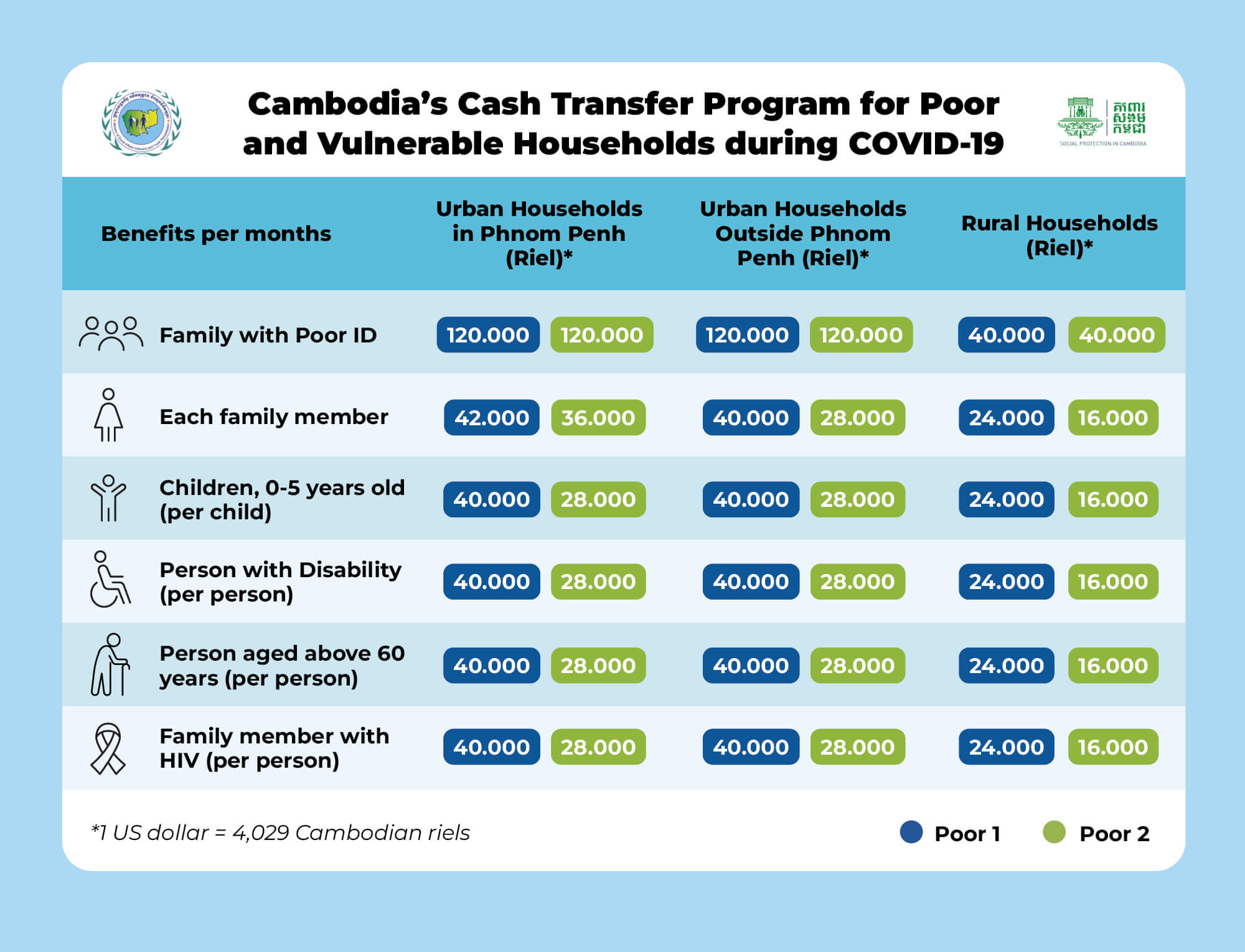
Insight from the Ministry of Social Affairs, Veterans and Youth Rehabilitation
Talking with The ASEAN magazine, Nhep Chane, Director of the Cooperation Department of the Ministry of Social Affairs, Veterans and Youth Rehabilitation, shared insights into Cambodia’s commitment to social welfare and assistance.
“Our ministry is in charge of the social protection and social assistance programmes, with a targeted approach to aid those in need. It’s a government priority to offer social services and welfare through these initiatives,” Chane explained.
Detailing the array of programmes, he highlighted that “the cash transfer programme for pregnant women and children under two was in place even before the COVID-19 pandemic, serving as a permanent fixture. Additionally, we have introduced social assistance during lockdowns, support for those affected by COVID-19, aid for families hit by severe flooding, and help for those impacted by inflation. With the pandemic behind us, we’ve phased out COVID-related assistance.”
Looking ahead, Chane elaborated on forthcoming initiatives. “We’re preparing to phase out the assistance for flooding and inflation before launching new projects in April. The Family Package Programme and the Shock Responsive Programme are set to be implemented, continuing our permanent support schemes. The Family Package Programme, in particular, will aim at assisting impoverished families, individuals with disabilities, people over 60 years old, and those living with HIV/AIDS. It’s a nationwide endeavour, building on the foundation of assisting over 700,000 households in previous programmes.”
Chane also touched upon ASEAN’s role in enhancing social protection strategies. “Through ASEAN, we’ve adopted regulations, recommendations, and action plans that reflect a collective effort in social protection. The exchange of best practices and declarations within ASEAN has significantly contributed to shaping our national action plans and programmes,” he concluded.
Associate Editor Joanne B. Agbisit contributed to this article.



